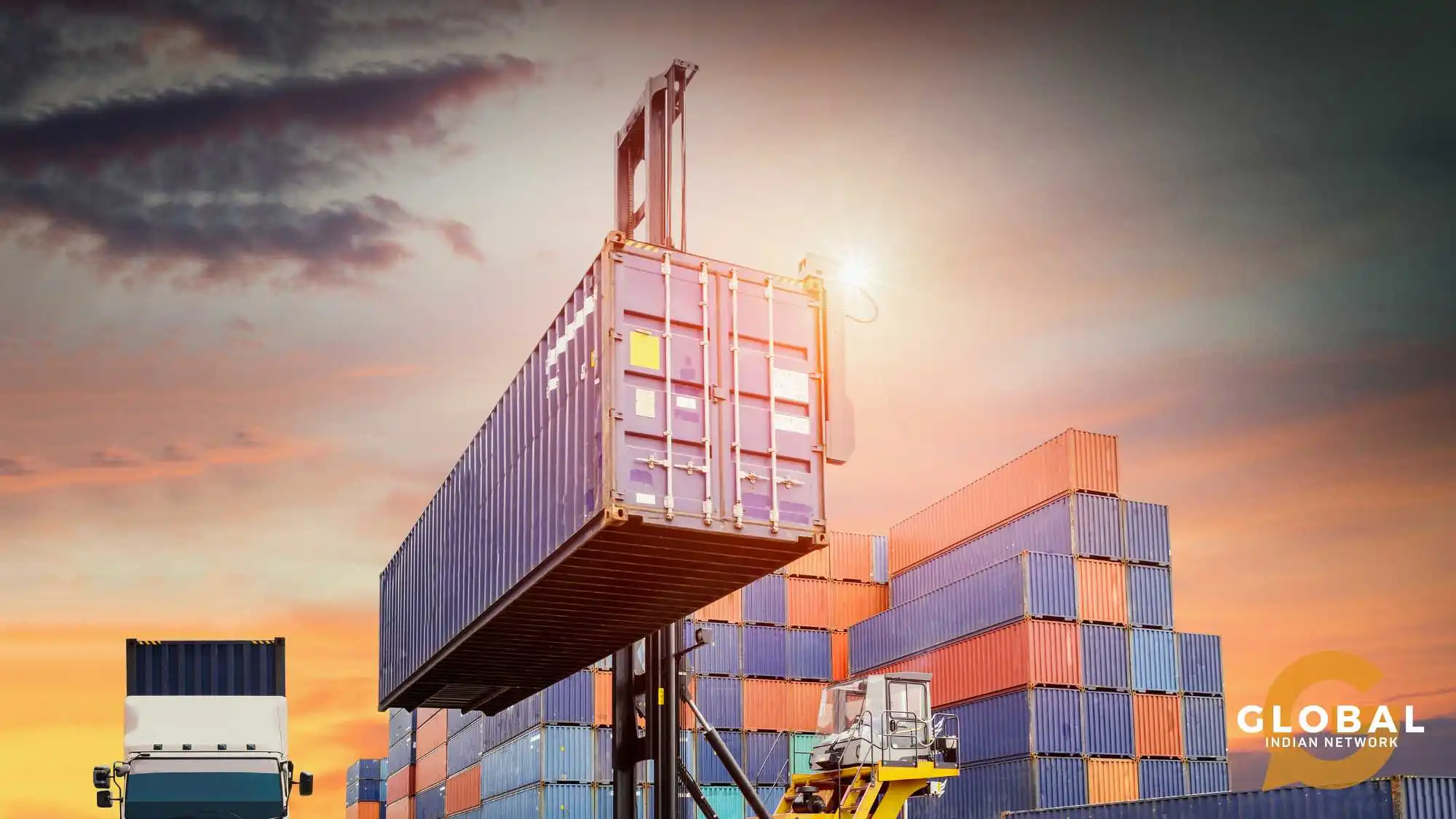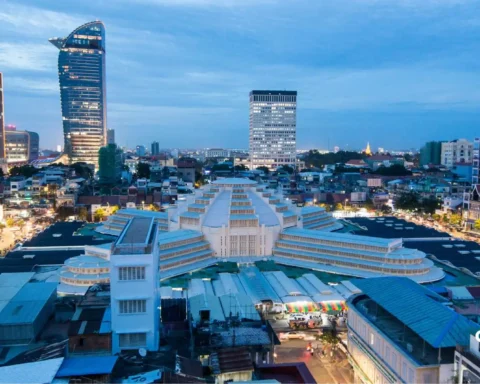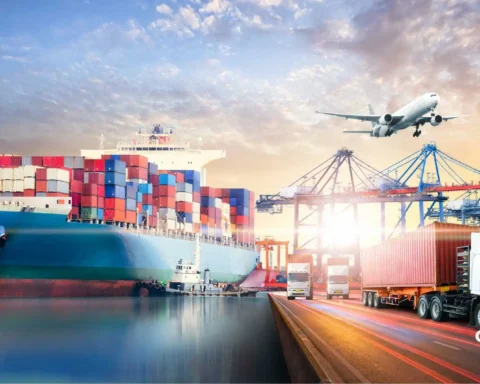Slovenian businesses are valued partners for enterprises seeking to effectively and successfully enter European markets because of their reputation for producing high-quality goods and services and their inventiveness, professionalism, dependability, and flexibility. Logistics resources in Slovenia are a must-know for new entrepreneurs.
Slovenia's logistics sector is gaining significant momentum through public-private partnerships (PPPs). The government seeks private sector investment to enhance infrastructure, efficiency, and competitiveness. PPPs can improve efficiency, innovation, and risk sharing between the public and private sectors while addressing budgetary constraints and attracting investment in infrastructure projects.
Listen To This Podcast: Is Slovenia the Emerging Logistics Goldmine in 2024? Insights from Natasa Pogacnik
Table of Contents
Logistics Resources in Slovenia
India and Slovenia are exploring the possibility of private partnerships in logistics, given their friendly relationship and strong interest from Slovenian companies in expanding their business in the transportation and logistics field. The Port of Koper in Slovenia, strategically located at the Adriatic Sea, is the fastest gateway for Indian exports to Central and Eastern Europe. At the same time, India has successfully developed its port infrastructure through PPPs.
Partnerships between countries could create efficient, sustainable, and competitive logistics solutions, but their specifics depend on regulatory frameworks, business environments, and the stakeholders' strategic objectives. This article covers the official resources required to propel your plan to set up a business in Slovenia.
Official Resources
Official resources and what their roles are matter to both nationals and foreigners. We have compiled the resources for you. If you're considering setting up a business in Slovenia, here are some official resources that can guide you through the process:
Slovenian Business Point (SPOT): This is a comprehensive online portal that provides information on company registration, employment types, working conditions, and social security in Slovenia. It also offers free consultation at the nearest SPOT Consulting point.
Company Registration Guide: The SPOT portal provides a detailed guide on how to register a company in Slovenia. It covers topics like the company name, the company's representatives, the head office of the company, the activities of the company, and legal forms of companies in Slovenia.
UHY Doing Business Guide: This report provides key issues and information for investors considering business operations in Slovenia. UHY is the name of a leading network of independent accounting and consulting firms established in 1986 and based in London, UK.
Multiplier: An international Employer of Record (EOR) firm, Multiplier helps companies grow globally by taking the hassle out of recruiting and managing staff abroad. This webpage provides information on how to set up a business in Slovenia.
Ministry of Infrastructure
Location: Langusova 4, SI- 1000 Ljubljana, Slovenia
Phone: +386 0 147 88000
Website: https://www.gov.si/en/state-authorities/ministries/ministry-of-infrastructure/
E-mail: gp.mzi@gov.si
The current Minister of Infrastructure in Slovenia is Jernej Vrtovec since March 2020.
The Ministry of Infrastructure in Slovenia has several key responsibilities:
Transport Infrastructure: The Ministry makes sure that Slovenia's transportation system is always being improved. Inland waterway transportation, as well as rail, road, air, cableway, and maritime transportation, are all maintained, planned, regulated, and improved by it.
Sustainable Mobility: It strives to achieve sustainable mobility and transport, which should be safer, more economical, and green.
Energy Infrastructure: The Ministry ensures that energy supply is reliable and sets the foundations for transitioning into a society which uses energy products more effectively and generates energy mainly from renewable sources.
Road Safety: To increase road safety, the Ministry also works on programs such as the Pledge on Responsible Road Traffic Behavior.
Ministry of Economic Development and Technology
Location: Kotnikova 5, SI- 1000 Ljubljana, Slovenia
Phone: +386 1400 3311
Fax: +386 1589 8560
Website: https://www.gov.si/en/state-authorities/ministries/ministry-of-the-economy-tourism-and-sport/
E-mail: gp.mg@gov.si
The current Minister of Economic Development and Technology in Slovenia is Matjaž Han. He has been serving in this position since June 2022.
The Ministry offers the assistance required to help Slovenian businesses become even more globally competitive and to restructure the country's business sector to the greatest extent feasible to meet the demands of the world economy.
The Ministry of Economic Development and Technology in Slovenia has several key responsibilities.
Internationalisation: The Ministry strives to increase Slovenian businesses' global competitiveness.
Entrepreneurship: It helps Slovenian businesses expand and flourish in both home and international markets.
Technological Development: To meet the demands of the global economy, the Ministry supports technological advancements.
Tourism: It also oversees the tourism sector.
Internal Market: A competitive, stable, and predictable economic environment is guaranteed by the Ministry.
Regional Development and the Wood Industry: It is in charge of the wood industry and regional development.
Intellectual Property, Market Inspection, and Metrology: Bodies within the ministry perform tasks related to these areas.
The Ministry has also established the European Space Education Resource Office in Slovenia (ESERO Slovenia), which integrates space technology into elementary and secondary education with the goal of promoting youth interest in science-related careers.
Chamber of Commerce and Industry
Location: Dimiceva 13, 1504 Ljubljana, Slovenia
Phone: +386 1 5898 000
Fax: +386 1 5898 100
Website: https://eng.gzs.si/
E-mail: info@gzs.si
The President of the Chamber of Commerce and Industry of Slovenia is Tibor Šimonka, who has been in office since May 2021.
The essential non-governmental organisation, the Chamber of Commerce and Industry of Slovenia (CCIS), represents the Slovenian economy. It was founded in 1851 and is Slovenia's largest independent, voluntary, non-profit association of businesses. With more than 5,200 members representing a range of industries and geographical areas, the CCIS is essential to the nation's economic development and business expansion.
The CCIS represents the interests of its members and acts as an informational body for business and economic services. It actively supports Slovenia's trade, industry, and commerce development. The CCIS also manages the Sloexport database, which contains data on Slovenian exporters, and houses the Ljubljana Arbitration Centre.
The largest voluntary, independent, and non-profit association of Slovenian businesses is called the CCIS. Established in 1851, it has over 5,200 member companies representing various industries, branches, and locations. As the voice of the business community, the CCIS offers assistance, counsel, and a comprehensive array of professional services to enhance the competitiveness of its members.
Transport and Communications Association (TZS)
Location: Dimiceva 9, 1000 Ljubljana, Slovenia
Phone: +386 1 589 82 31
Fax: +386 1 589 82 00
Website: https://www.zdts.si/
E-mail: zpz@gzs.si
Jernej Vrtovec is currently serving as the Minister for Infrastructure in Slovenia since March 2020. It's essential to note that the Ministry of Infrastructure oversees various areas, including transport and communications, within the country.
In Slovenia, businesses and individuals involved in the transportation and communications industries are represented by the Transport and Communications Association (TZS), a professional association. It has more than 1,000 members and was established in 1952. The TZS is a member of the European Transport Forum (ETF) and the International Road Transport Union (IRU).
The association aims to achieve several key objectives related to the transportation and communication sectors. Here are the salient points:
Enhancing Connectivity: The association aims to increase connectivity between Slovenia and its surrounding areas. This comprises integrated logistics systems, smooth communication channels, and effective transportation networks. The association's primary goal is enhancing connectivity within Slovenia and neighbouring regions. Examples of this are integrated logistics systems, smooth communication channels, and effective transportation networks.
Promoting Sustainable Mobility: Promoting environmentally friendly mobility options is a top concern. The association wants to lessen its environmental impact, improve public transportation, and encourage environmentally friendly modes of transportation.
Advancing Digitalization: The association strives for communication and transportation to become more digital. This entails doing away with bureaucratic procedures, cutting expenses, and leveraging technology to increase productivity.
Collaboration and Partnerships: The association encourages collaboration between government agencies, commercial businesses, and academic institutions. Collaborations are necessary to accomplish shared objectives in the communication and transportation industries. It networks with other relevant organisations in Slovenia and abroad.
Infrastructure Development: The association favours infrastructure developments that improve Slovenia's connectivity and logistical capacities. These projects include airport expansions, road networks, and railway upgrades.
Policy Advocacy: It is imperative to advocate for policies and regulations that are beneficial. The association interacts with legislators to resolve issues, encourage creativity, and establish a climate that supports the sector.
Other activities: Transport & Communications is a monthly magazine published by the TZS. The magazine provides information on news, happenings, and advancements in the industry. Training programs on various subjects, including safety, logistics, and transport law, are available from the TZS. When interacting with the government and other stakeholders, the TZS speaks on behalf of its members.
The Transport and Communications Association in Slovenia aims to improve connectivity, promote sustainability, advance digitalisation, foster collaboration through conferences and events, support infrastructure development, and advocate for favourable policies in the transportation and communication sectors.
U.S. Commercial Service
Location: Prešernova 31, Ljubljana, Slovenia
Phone: +386 1 200 5644
Fax: +386 1 200 5555
E-mail: DoingBusinessinSlovenia@state.gov
In Slovenia, the U.S. Commercial Service is essential to helping companies engage in global trade. Their network of trade experts, based in American consulates and embassies, offers market intelligence and arranges business dealings. They lobby for easier market entry on behalf of American companies every day.
Consider contacting the U.S. Commercial Service Partner Post Slovenia to learn more about the trade possibilities in Slovenia. They can assist you in navigating the trade landscape and expanding your company in this vibrant European market. You can also get assistance with exports by contacting your local U.S. Commercial Service (CS) office in the U.S.
Assistance by U.S. Commercial Service
Guidance on Exporting to Slovenia
- Market intelligence and research: Learn about industry trends, top industries, rival analysis, and more.
- Make connections with possible Slovenian distributors, partners, and buyers through business matchmaking.
- Trade finance and risk mitigation: Acquire knowledge of financing alternatives and risk-reduction strategies.
- Trade shows and missions: Take part in events to present your goods and services to prospective clients.
- Customs and regulations: Recognize import laws and the processes involved in customs.
Guidance on Investing in Slovenia
- Analyze the investment climate by learning about the regulatory landscape, the political and economic climate, and the investment incentives.
- Look for possible places to invest as well as partners.
- Handle Slovenia's legal and regulatory framework when conducting business.
Other Resources
- U.S. Commercial Service Slovenia: https://www.trade.gov/slovenia
- Slovenia Country Commercial Guide: https://www.trade.gov/country-commercial-guides
- Doing Business in Slovenia: https://si.usembassy.gov/business/
Ministry of Health
Location: Štefanova 5, SI- 1000 Ljubljana, Slovenia
Phone number: +386 1 478 60 01
Email: is.vog@zm.pg
Website: https://www.gov.si/en/state-authorities/ministries/ministry-of-health/
Janez Poklukar is a Slovenian politician and doctor. As of 23 February 2021, he is Minister of Health in the 14th Government of Slovenia.
The Ministry of Health of the Republic of Slovenia is the government agency responsible for overseeing the country's healthcare system. The ministry is responsible for a wide range of tasks, including:
- Developing and implementing health policy.
- Overseeing the healthcare system
- Promoting public health
- Providing funding for healthcare
- Regulating healthcare professionals and institutions
The Ministry of Health is also responsible for responding to public health emergencies, such as the COVID-19 pandemic. It is also involved in the following:
In particular, the ministry oversees health measures and monitors the country's health programs during natural disasters. Slovenia acknowledges the universal human right to mental health. In actuality, 2023 has been designated as the Slovenian Year of Mental Health by the Government of the Republic of Slovenia. The government has enacted new amendments to stabilise the healthcare system and guarantee its responsiveness and utilisation.
Slovenia is a proud member of the Small Countries Initiative, a World Health Organization (WHO) program that aims to promote health and well-being. The Nutrition Institute has acknowledged that Slovenian food companies are leading the way in innovation to make food more sustainable. To prepare for what lies ahead, Health Minister Danijel Bešič Loredan gave a presentation titled "Overview of the Situation in Slovenian Healthcare."
Slovenian Logistics Association (SLA)
Location: Dimičeva ulica 13, 1000 Ljubljana
Phone: +386 1 251 19 83
Fax: +386 1 251 19 84
Website: https://www.slz.si/en/
Email: info@slz.si
The President of the Slovenian Logistic Association is Mr. Igor Žula.
The Slovenian Logistic Association is a voluntary, independent, and non-profit organisation comprising members and sympathisers from the fields of transport, traffic, and business logistics. Here's a concise summary of its role:
Network and Community: SLA links more than 250 managers, specialists, business owners, and other people interested in or have experience in logistics. Its goal is to use group efforts within the association to strengthen Slovenia's international reputation, increase visibility, and contribute to the overall development of the country's logistics.
Objectives: SLA seeks to integrate networks and link stakeholders within integrated logistics networks to promote added value, professionalism, and competitiveness. Incorporating high-tech solutions and product transformation advances Slovenian logistics and the logistics industry worldwide.
Membership Benefits: Members can exchange best practices, insights, and experiences from domestic and international logistics by joining SLA. Keep up with emerging trends, technological advancements, and chances to boost value and competitiveness. SLA opens new business opportunities by facilitating connections between users and logistics service providers.
In conclusion, SLA is essential to the advancement and collaboration of Slovenian logistics and the expansion of this important industry.
It is possible for foreigners to interact with the Slovenian Logistic Association (SLA). SLA is an independent, non-profit, volunteer organisation that invites communication from anyone with an interest in business logistics, transportation, or traffic. Here’s how foreigners can participate:
Membership and Networking: By joining an SLA, foreigners can learn from local and international logistics practices, exchange experiences, and transfer knowledge. The association informs members about emerging technologies, market trends, and chances to improve added value and competitiveness. The association creates new business opportunities by connecting logistics service providers and users.
Events and Initiatives: SLA organises several gatherings, such as webinars and congresses, where attendees can network, discuss, and learn. For example, the Logistics Congress 2024 brings together logistics stakeholders and offers a forum for discussion and cooperation.
Vision and Mission: SLA strengthens professionalism and competitiveness by bringing stakeholders together within integrated logistics networks. Through high-tech solutions and product transformation, Slovenian logistics' reputation is enhanced, and the worldwide logistics industry is advanced.
In conclusion, foreigners with an interest in logistics can actively engage in SLA's operations, advance the field, and discover beneficial connections within Slovenia's logistics ecosystem.
Listen To This Podcast: Is Slovenia the Emerging Logistics Goldmine in 2024? Insights from Natasa Pogacnik
Conclusion
Slovenians prioritise punctuality and are known for their direct and egalitarian communication style. They have a strong work ethic, known for their diligence and commitment to tasks. Slovenia follows a top-down management approach, making major business decisions by top management. Slovenians respect foreign business professionals based on their knowledge and abilities and prefer face-to-face meetings. They may seem unfriendly to those from informal cultures, but their organisational structure plays a significant role in shaping attitudes within the business environment.
Knowing now about logistics resources in Slovenia, it should be a breeze to set up a venture there. We wish you the very best!










[…] and environmental impact. The location should be easily accessible, considering transportation logistics and site-specific challenges. The builder should be able to offer a range of customisation options, […]
[…] for efficient supply chain coordination, including inventory management, demand forecasting, and logistics optimisation, thereby minimising delays and reducing excess […]
[…] and Financing: Explore funding sources like grants, public-private partnerships, and international collaborations, and conduct a cost-benefit analysis to assess the economic and […]
[…] The solution lies in integrated logistics. […]
[…] the world of logistics can feel like deciphering a complex code, especially with the myriad of abbreviations commonly used […]